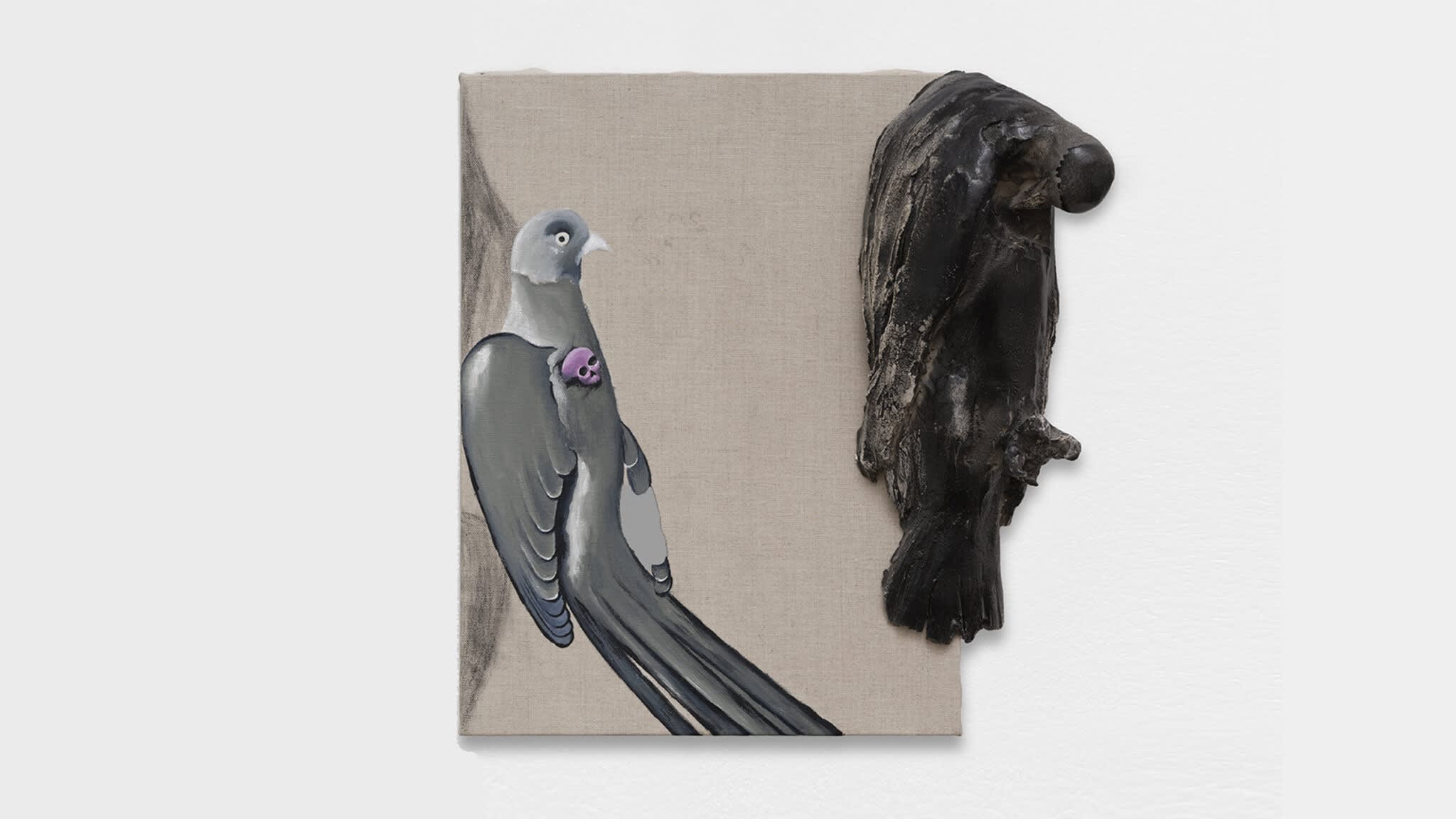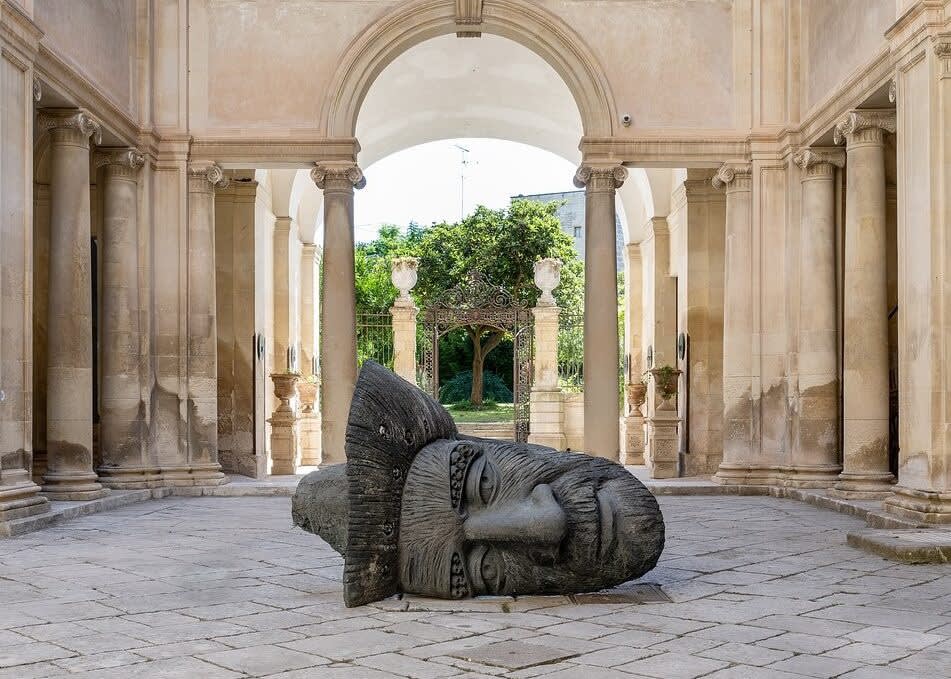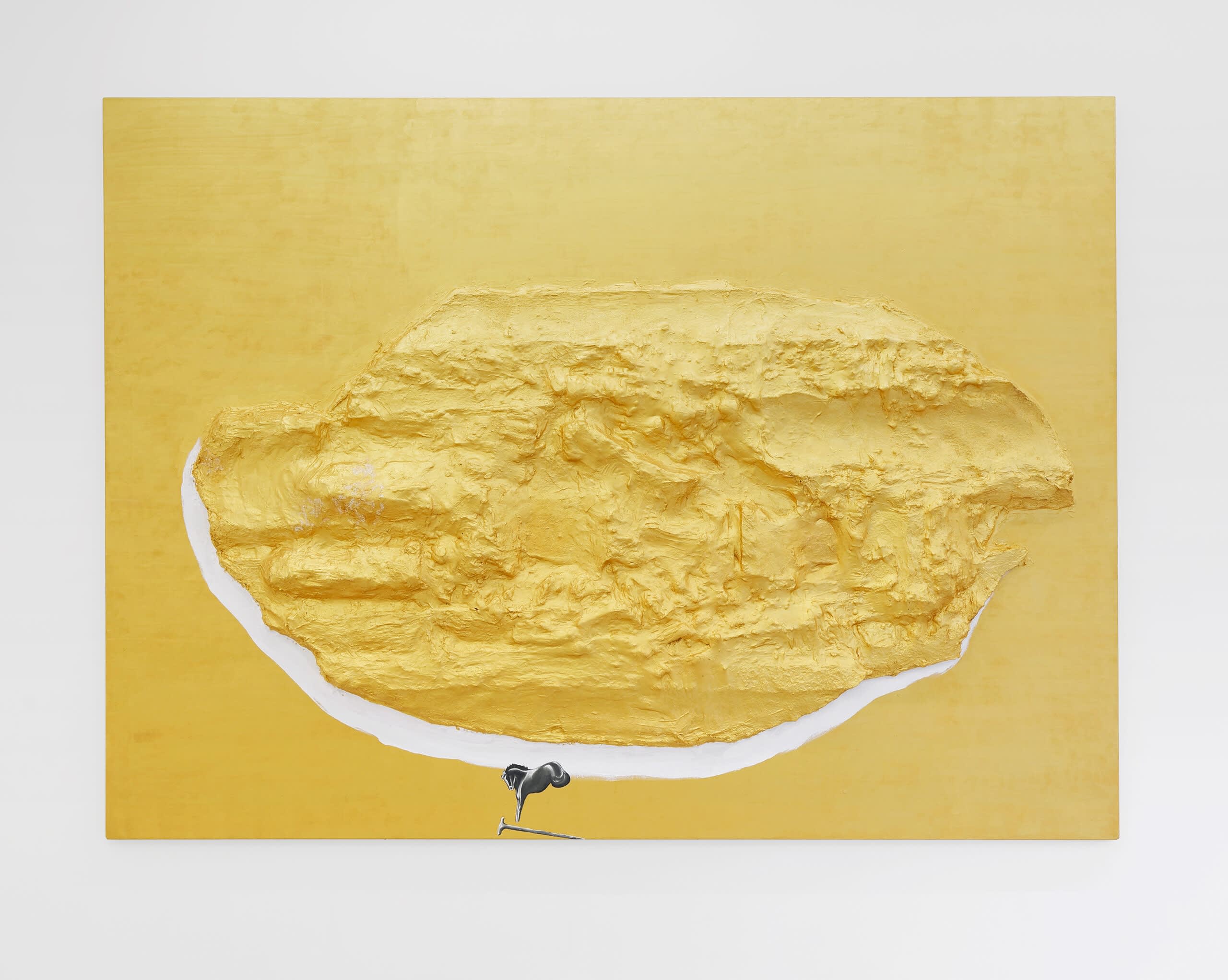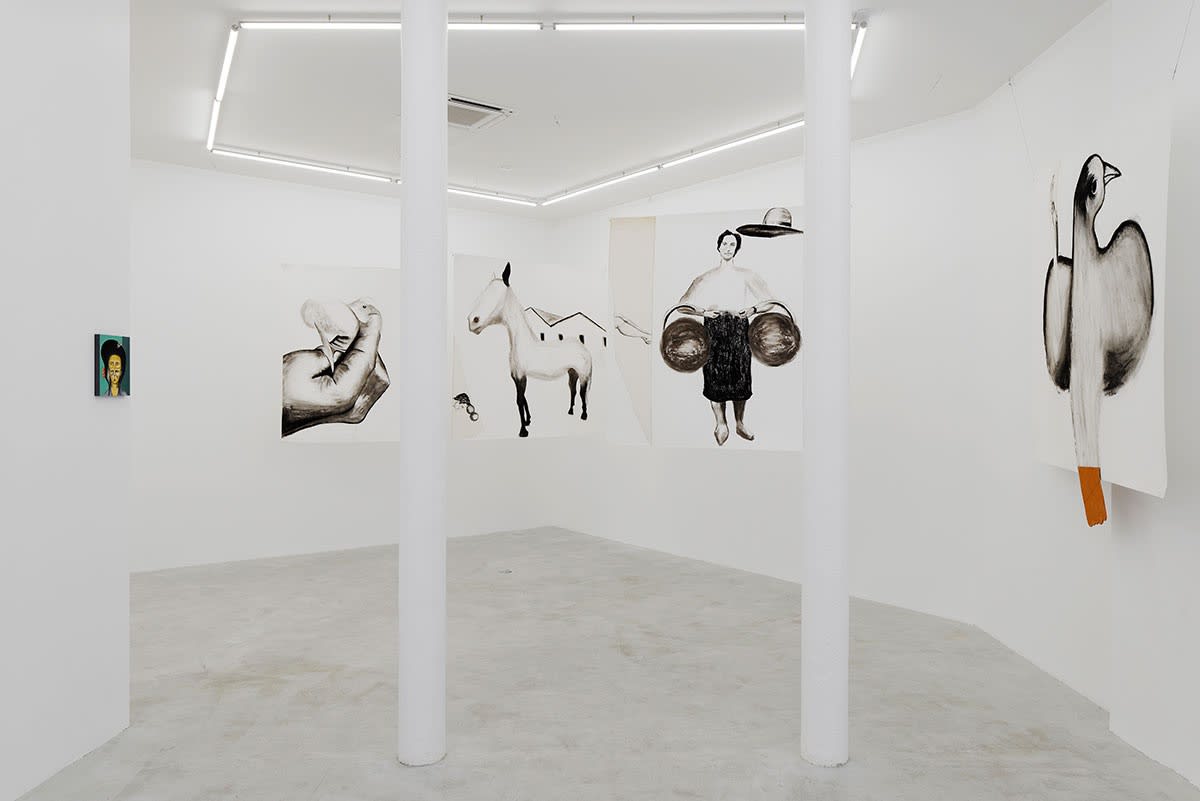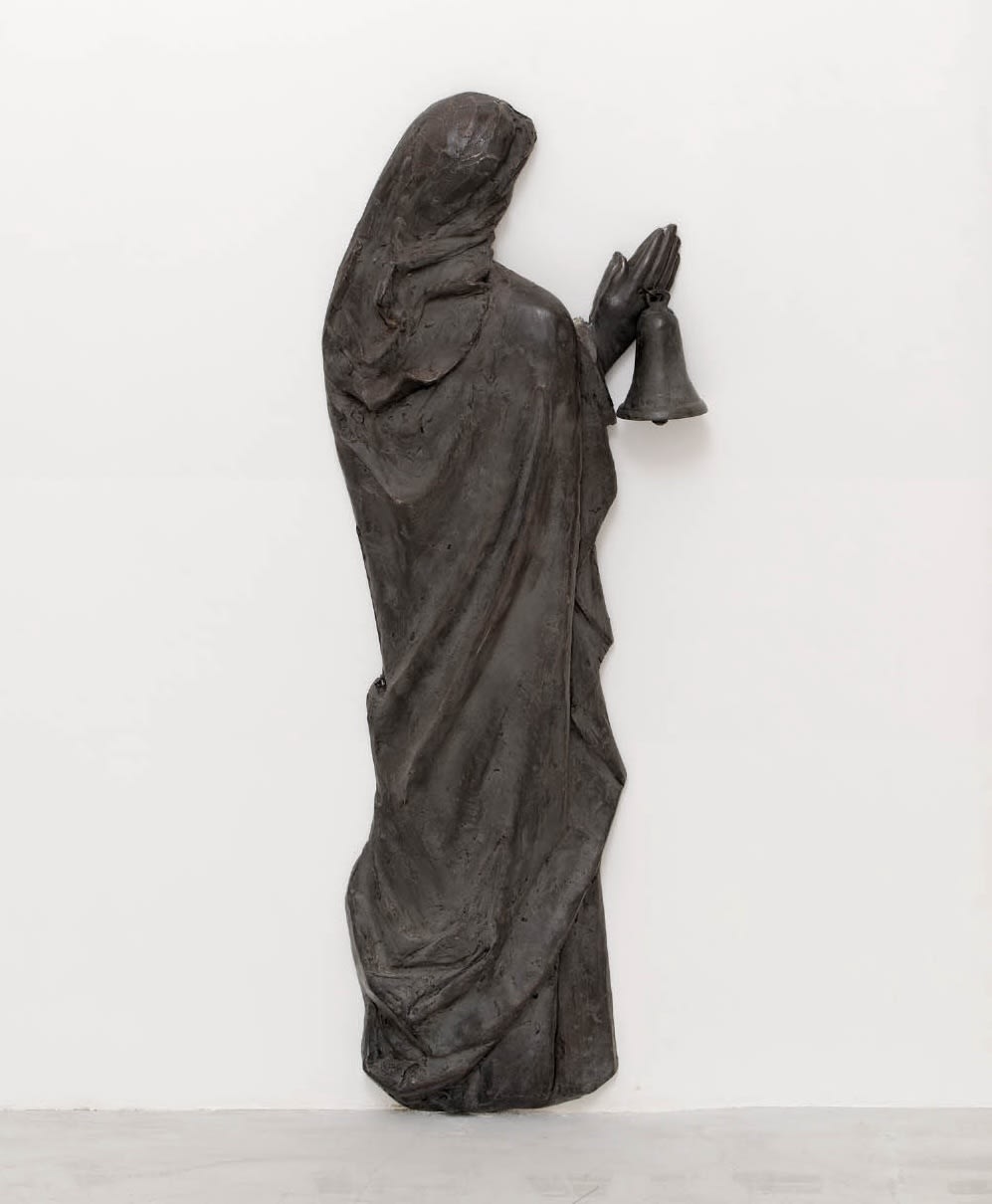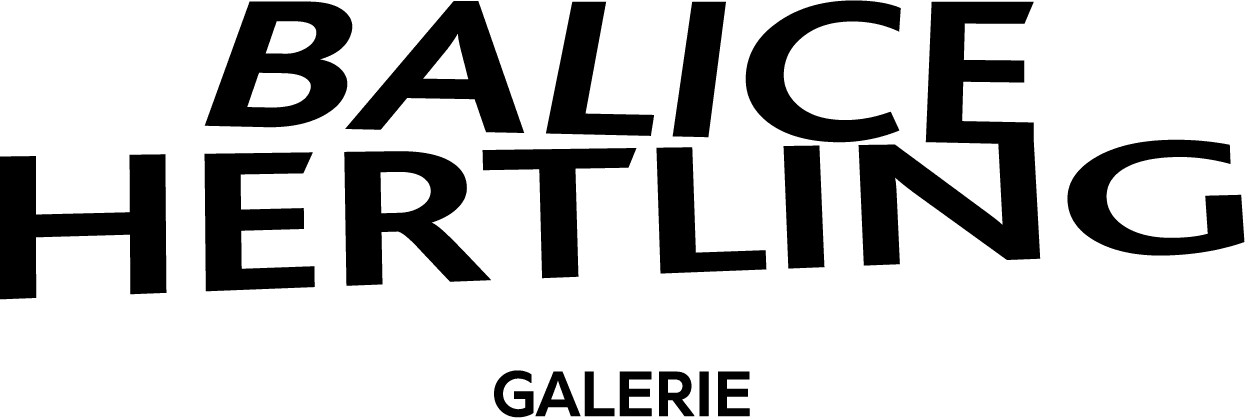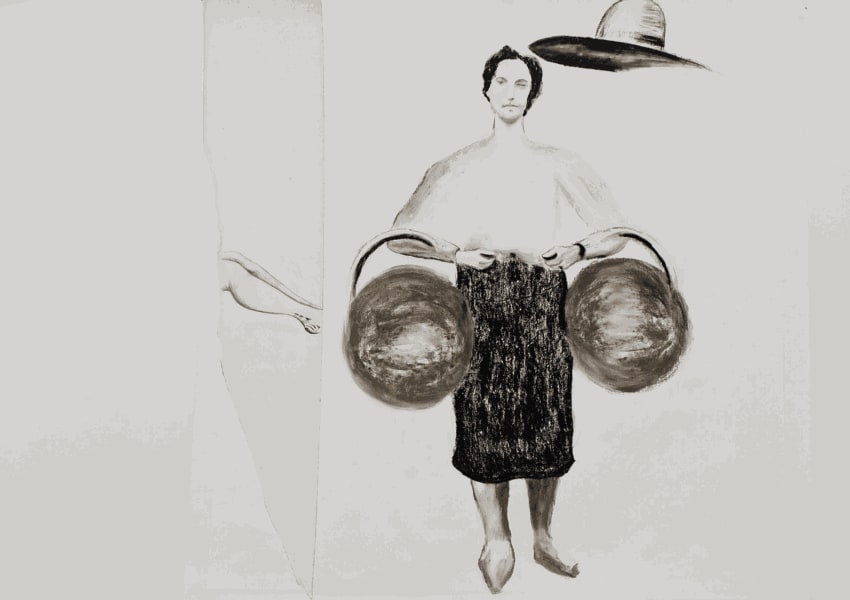
Giuseppe Cucchi was born in Morro D'Alba (Ancona) in the region of the Marche, on the Adriatic sea. In the 60s he moved to Brescia in Northern Italy to find a better work but he came back after a few years as he couldn't breathe well there. He lived in Ancona for many years and now he has come back to live in his native village, Morro D'Alba, with his wife Chiarina. He is 82 now. His son is Enzo Cucchi.
The wheat is the most important thing. It is harvested in the summer. Many years ago at dawn on the day of the harvest the violinists and the organ grinder would arrive to follow the file of the reapers. They would all advance in a horizontal line stretching across the field, cutting the wheat with their sickles and singing to the music. Through the hills near and far, once you heard that music and singing, you would know the harvest had begun. The reapers would strain their arms and legs into the night, working a thirteen hour day. This is how they would do it: with one hand they would come down with a half turn of the sickle, and with the other they would grab a bunch of wheat into a sheaf. First they put two or three sheaves together on the ground, making a pecorella, or "little Iamb," and then they put the lambs together to make a stack. The stack then was tied with a balzo, a small cord made from a twisted stem of wheat; and the balzo rolled up around a piro, a little wooden rod that lasts year after year. You tuck it in your belt and use it at every harvest. The reapers would doubled over by their work as they crossed the fields singing and the violinists would follow, playing for them, and all was suffused with the warm smell of the wheat itself. They sang of love and many of their songs were daring, close to the bone.
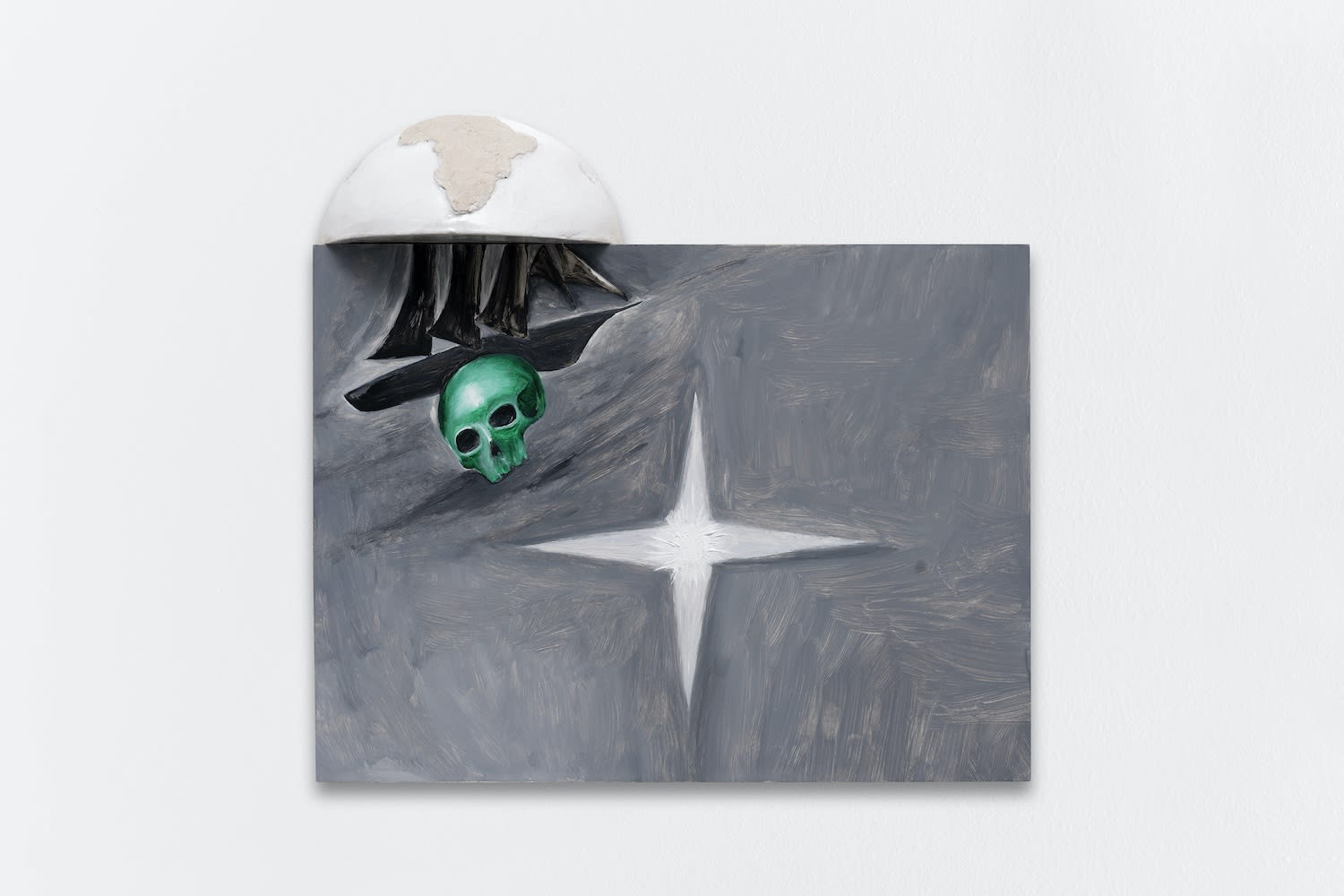
Enzo Cucchi, Senza titolo, 2018.Oil and ceramic on canvas, 38 x 40 x 10 cm.
Already at the beginning of the nineteenth century a violinist followed the reapers. Then he sang by himself. The violinist was a true musician and he also used to play for Easter Monday and at the New Year, passing from cottage to cottage with a sack that each family would fill in exchange with a plate of meal or flour. On Passion Sunday he would expect eggs and every family would give him seven, maybe even ten. At the grape harvest, no, there weren't musicians, but the workers would sing as they smashed the grapes with their feet in the vats. The grape pressing makes a foam be with a perfume that is a bit tart and sweet and it stays on top of the grapes for several days as the men roll up their pants-legs and the women roll up their skirts and they all begin to sing, also songs that are a little daring...No, this doesn't spoil the wine. No one knows why, but the wine separates itself from everything else in the vat, only its own liquid and perfume remain. Everything else bees, bits of straw, leaves, twigs, flies, dirt is separated from the wine. You see, wine is truly potent-it can take care of itself!
These are stories grandfathers tell, like the story of the robin redbreast who got his name because he was splashed by the blood of Christ on the cross.
When I was in the war I wrote to my family and used these stories to help them understand me and at the same time to confound the censors. I would write: "Dear ones, here you dig and never hoe." And they would understand that we had retreated from the front, for when you dig you always go backwards and when you hoe you always go forward.
Enzo Cucchi, Untitled, 2018. Oil and ceramic on canvas, 40 x 38 x 10 cm.
When I came back from the war, I was imprisoned for six years and then released in Algeria and then I came by train to the city, and then by truck to the countryside, and then by foot at night and I couldn't find the road to my own house. And when I asked about it, the countrymen told me, "stay here to sleep for the night since it is dark and you won't be able to find the house." But I just couldn't wait and I passed by the graveyard and stumbled and hurt my legs there in the darkness, yet still I wasn't willing to stop and finally I saw my house. It was all dark and so I went to someone who lived nearby and I said, "Go there and say I am here, but gently because mamma is old and we should break the news to her quietly." And I waited and waited outside behind a bush and I was so tired and exhausted and hungry and I thought I wouldn't be able to wait any more. Just then I saw that all the lights were coming on one by one throughout the house and then I went out and hurried into the house and we had a celebration that lasted all night long.

Enzo Cucchi, Untitled, 2019. Oil on wood framed in a ceramic structure (diptych), 50 x 29 x 5 cm.
The country is hard. In the next life there's nothing I would less like to be than a peasant. To work in the fields is torture; in the summer you kill yourself in the heat, you sweat and the dry earth sticks to you and fill your lungs; in the winter your feet ache from the cold; you must be able to go out to work in the fields in the intense cold at dawn and you won't be able to quit until night comes. A backache is killing you and you still can't stop and the cold damp enters your bones. And after you have worked for months, you find that in June it never rains and the beetroots go bad and don't earn anything and your half turns out to be nothing-the other half must go to the padrone-and so you are starving; and after you have taken care of the vineyard you find that one day it hails and the grape harvest is ruined and there's little left to eat. You can say "Oh look how beautiful the fog is," covering all the valleys and hills. But fog is the most ugly thing I know, sneaking into the bones while you try to work without being able to see a thing.
Smell the smells, always, the smells of everything, of the rain and the grasses and the earth and the plants and the animals. And the house is full of smells, too. Each thing has its smell. For these odors cling to people and things, getting deep inside them. When you have no sense of smell or have no odor yourself, as things are today, nothing is connected to anything else and you are disconnected from everything, smells can link together.
Enzo Cucchi, installation view at "Palai", Lecce 2023.
The family was joined together for a lifetime; it was impossible to think that after all this work and the breathing of the scent of a woman, and the scents of a house and a family, that a man could forget them and turn to another woman. In the end, the old couple stayed together, the old couple before the fire, by this time useless, and they knew it; but they were able to give advice and they truly were wise. One here and one there by the fire, the old man with his long moustache, the old woman with a handkerchief folded around her head, her long hair tied up into a bun... Eighteen of us lived in this house. In the countryside we took our bath once a week and carried the water in the washtub into the stalls because there, beside the heat of the cows, we found it to be much less cold. The cows were aware of everything! A moment before the wind changed, they would puff out their noses, lengthening the muzzles and blowing hard. Well, then, here, you see, the wind was changing! When you need milk from a cow that has become pregnant again, you must milk her near a tree where ants are going to and fro.
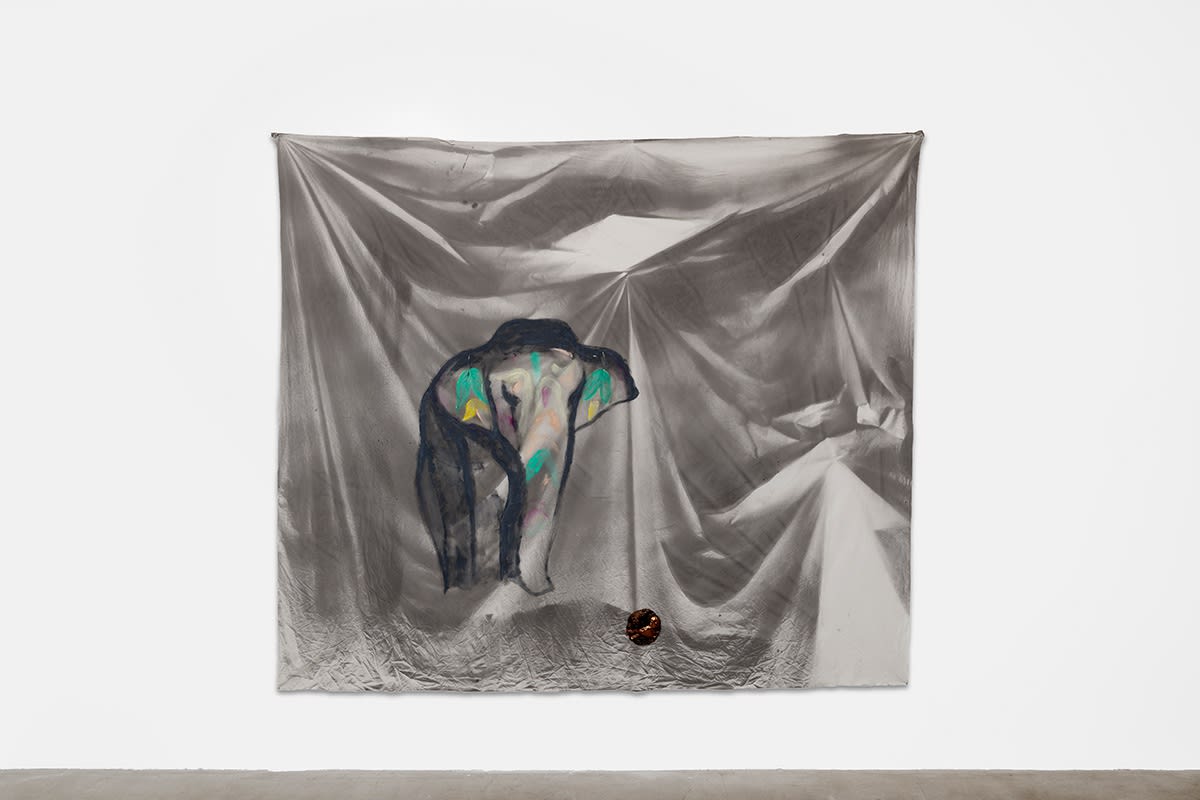
Enzo Cucchi, Senza titolo, 2019. Oil, tempera and ceramic on canvas, 205 x 236.5 x 3 cm.
In July they would thresh the fields and then need to plough in August and the smallest boys, those eight or nine years old, would go to "tocca' la stroppia," that is, they would take a little whip in their hands and lead the cows, two in the front and two in the back, with the plough behind. They would awaken at four in the morning to go the ploughing and one time I overslept and my father yelled to me that it was already dawn. So I had to plough three furrows by myself and there wasn't enough time and meanwhile the cows had come to a stop to chew their cud-the poor beasts with their tongues hanging out from fatigue; it was a torture for us as well as for them, with their legs and hooves stuck in the earth that was soft for sowing and their heavy feet, dragging along like lead.
Enzo Cucchi, Senza titolo, 2019. Oil, tempera and ceramic on canvas, 205 x 236.5 x 3 cm.
In war time the children did the work for the men and at the age of thirteen they would get up at one in the morning to prepare the hay to be used as straw for the winter animals and they needed to do it in the dark, by the "solustro," or the light that the moon casts while the eyes get used to seeing in the dark and shadows. And they went ahead with the sickle and the kids spat blood. But they weren't about to do the work in the daylight because the seeds that fell would open right away in the midday heat; instead with the night's humidity they stayed shut and would germinate later, in the right time.
We worked in our bare feet or in clogs and shoes were worn only on Sundays and holidays. From the house we would carry them by hand and then put them on at the last moment before we entered the church
in our good clothes.
When we could afford it, the shoe repairman would come to the house to meet our needs. He went through the countryside carrying everything necessary to repair shoes or make new ones and he took our measurements and made us shoes right there in the house and ate with us.
Enzo Cucchi, exhibition view at Balice Hertling, 2017.
And the seamstress came to the house whenever our clothes were worn out and we needed new ones. In November we sowed the seed and in December or January we made the "pista", that is we butchered the pig. Always under the waning moon. Everything must be done under the waning moon, also pruning trees or cutting hair. Never with the new moon. "Pista" is the word for all the parts of the pig that we used. We never wasted a bit of the pig: from the meat we made salami, bacon, pork loins, ciavuscolo, prosciutto, sausages, with the feet, stuffed pig's feet, or cotechini, with the head we made a kind of sausage called coppa, with the fat, lard, and bacon fat, with the skin, pork rinds, also we cooked the tongue and the tail in a sauce, with the liver and lungs and heart we made the coratella, with the blood we made black puddings called sanguinaccio, that is a kind of salami or we made a smigliazzato with the blood by mixing it with the wine that is made from the sweet fresh grape juice, the vin cotto, that is aso good for the child that has a cough; with the intestine we made tripe and with the gut we made casings for the sausages, with the bristles we made brushes and with the penis we made the grease for shining shoes.
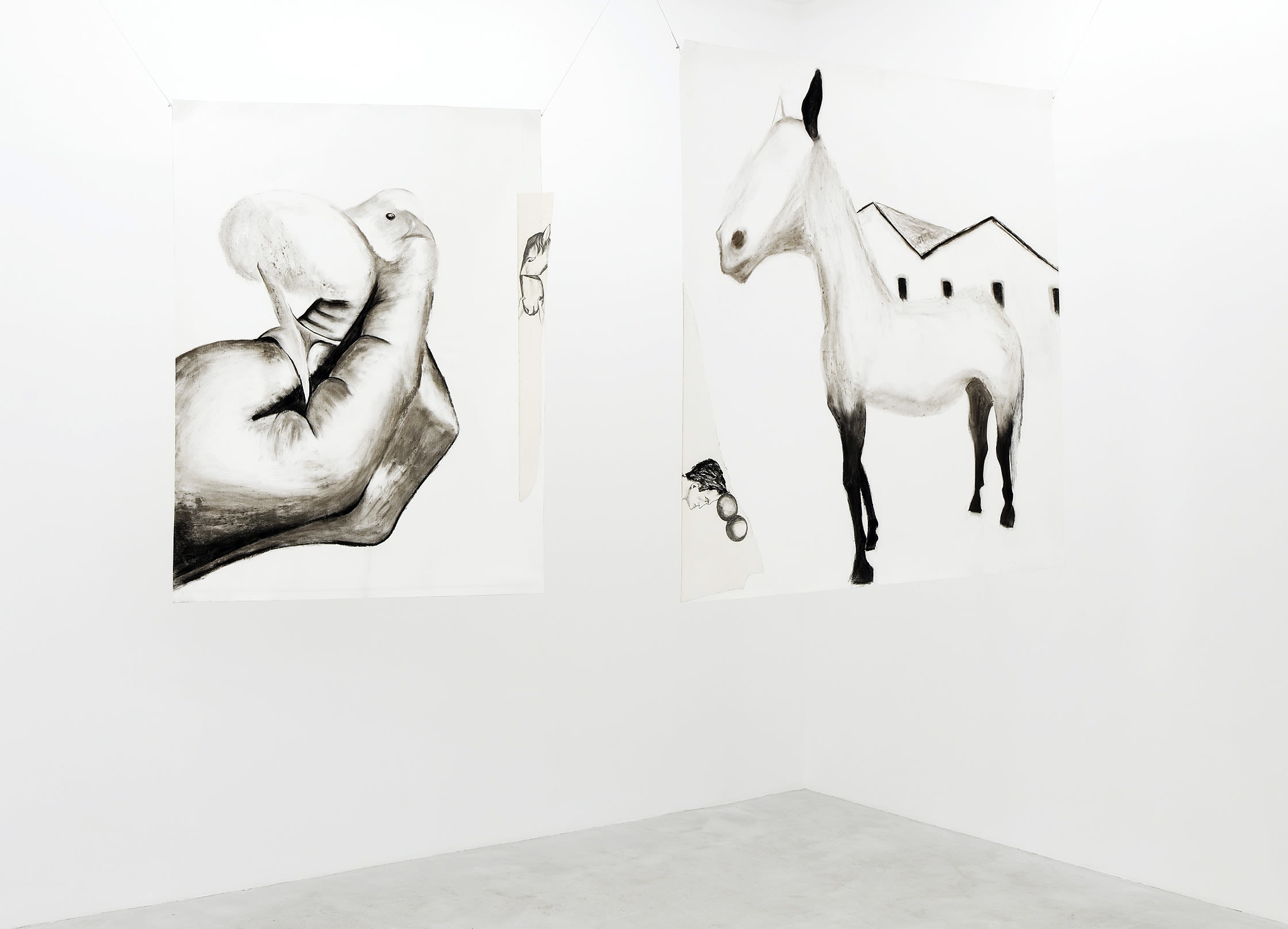
Enzo Cucchi, Senza titolo, 2017. Pencil and charcoal on Fabriano paper, 150 x 113 cm and 150 x 155 cm.
On butchering day we put the pig on the basin (which was like a concave table) and began to butcher it at the throat and it screamed so loudly that sometimes the women were not able to bear it; also the smell of the blood; then we quickly had to drain the blood because otherwise it would cling to the meat and the meat couldn't be preserved; then we flung boiling water over it to peel off the skin and took the meat that was within the gut; the fat of the bladder we drained in fire and then put again inside the gut as casings; we melted the fat from the bladder in the fire and then put it again inside the gut and called it "strutto" , that is "distrutto," or destroyed and saved it for frying. We saved the bacon fat and lard for sauces. We put the meat in salt for eight days then for a month near the hearth fire. We hung the salami and prosciutti in the cellar since it wasn't the time to eat them- the summer-when we worked hardest and everything is dry and there is more hunger. In the winter we ate polenta, bread with onions, in autumn bread with figs or grapes.
And then in Spring there was the sowing of the grass and corn. In the hills it isn't in fact possible to irrigate and every season we would wait for rain. In May we would prune the vines that we called the "green vines" and make the paratura, or do the pruning of the tendrils; we would leave alone the tops that make the grape without unbalancing the main trunk of the vine. We call it "paratura" from "pareggiare", to make even, like a haircut; the vines too have their own rules.
And in the summer we harvest the wheat, for that is the most important thing. In every grain of wheat the face of the Madonna andchild appears. If you don't really believe this, look closely at the top of the grain of wheat and you won't go wrong. There is a mantle that envelopes two heads, one above and one smaller and a little below. Every grain has this figure of the Madonna. If you really don't believe this, think of how the fireflies arrive in the summer: before the wheat is mature, you never see them. Then they fill the fields and roads with their lights. The fireflies are the ones, who ripen the wheat-they beard the beards of wheat!
The fireflies arrive only to ripen the wheat and shine their lights on the Madonna, and then their work is done."
Morro D'Alba, Summer 2001
Enzo Cucchi, La madonna con la campana che suona, 2017. Bronze, 100 x 40 x 12 cm


